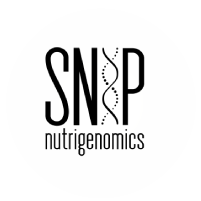Have you ever wondered why some people can eat what they want and never gain weight, while others seem to struggle despite their best efforts? The answer may be more than just diet and exercise—it could be written in your DNA.
Your metabolism—how efficiently your body converts food into energy—is influenced by a combination of factors, including age, activity level, and body composition. But one of the most powerful and often overlooked influences is your genetic makeup.
At SNiP Nutrigenomics, we specialize in decoding the genetic blueprint that shapes your metabolism. By understanding your unique genetic variants, we help you work with your biology, not against it.
What Is Metabolism, and How Is It Measured?
When people talk about “speeding up” or “boosting” their metabolism, they’re usually referring to how efficiently their body burns calories. But metabolism isn’t a single number—it’s a complex system that reflects how your body converts food into energy. Two important measurements help us understand it better: BMR and TDEE.
Basal Metabolic Rate (BMR) is the number of calories your body burns at rest, just to keep you alive. Even when you’re not moving, your body is working hard behind the scenes to breathe, circulate blood, digest food, and power your organs. Your BMR accounts for the largest portion of your daily calorie burn. Calculate yours here.
Total Daily Energy Expenditure (TDEE) builds on your BMR. It includes not only your resting energy use, but also the calories you burn through movement, like walking, working out, fidgeting, or even standing. Understanding your TDEE helps you figure out how many calories you actually need each day to maintain, lose, or gain weight. Calculate yours here.
While factors like age, weight, gender, body composition, and activity level influence these numbers, your genetics lay the foundation. The way your body processes energy is influenced at a cellular level by your unique genetic makeup, and this is where SNiP Nutrigenomics comes in. By understanding your DNA, we can help you optimize how your body uses energy, not just how much of it you burn.
Many people focus only on diet or workouts to change their metabolism, but genetics provides the foundation for how efficient your energy use really is.
The Genetic Link: Key Genes That Influence Metabolism
FTO: The Appetite Gene
The FTO gene has earned a reputation as the “appetite gene”—and for good reason. Variants in this gene are linked to increased hunger and a tendency to overeat, particularly high-fat or calorie-dense foods. If you’ve ever felt like your cravings have a mind of their own, your FTO variant might be playing a role. Understanding this gene can help you develop strategies—like eating more protein and fiber, or prioritizing sleep—to naturally regulate appetite and improve satiety.
-
Role: Regulates appetite and energy expenditure. Certain variants are linked to increased hunger and reduced satiety.
-
Support: Knowing your FTO status can guide personalized strategies to reduce cravings and improve energy balance.
MC4R: Regulating Energy Balance
The MC4R gene is another major player in your body’s hunger and energy balance. When certain variants are present, you may have a harder time recognizing fullness or maintaining consistent energy levels throughout the day. People with this variation may struggle more with weight gain or energy dips, even with a healthy lifestyle. A targeted approach using your genetic profile can support energy regulation and help stabilize eating patterns.
-
Role: Helps regulate appetite and overall energy equilibrium. Variants may make it harder to control food intake.
-
Support: Customized nutrition and lifestyle plans can help restore balance.
Thyroid-Related Genes: Your Metabolism’s Thermostat
Genes like FOXE1 influence how well your thyroid functions—and since the thyroid acts as your body’s metabolic thermostat, even subtle changes can have a big impact. Genetic variations in this area can lead to a slower metabolism, reduced energy, or even trouble losing weight. But knowing your risk gives you the opportunity to support thyroid health with essential nutrients like iodine, selenium, and zinc, or more advanced support when needed.
-
Role: Thyroid hormones drive metabolism. Genetic variants can influence how effectively your thyroid functions.
-
Support: Targeted nutrients and lifestyle support can optimize thyroid function and energy output.
Uncoupling Proteins: Burn More Through Heat
Uncoupling proteins UCP1, UCP2, and UCP3 are found in your mitochondria and help convert calories into heat instead of storing them as fat. This process, called thermogenesis, can significantly influence how many calories you burn at rest. Genetic variations can enhance or reduce this heat-producing effect. Supporting mitochondrial health through targeted nutrition, stress reduction, and physical activity may help you maximize your natural calorie-burning potential.
-
Role: Located in mitochondria, these genes help your body burn energy as heat, a process known as thermogenesis.
-
Support: Supporting mitochondrial health can enhance calorie burn and metabolic efficiency.
Additional Genes That Influence Metabolism
While genes like FTO and MC4R get much of the spotlight when it comes to metabolism, there are several lesser-known genes that play critical roles in how your body produces and uses energy. Understanding these genes can offer deeper insight into your metabolic efficiency and overall well-being.
MTHFR (Methyltetrahydrofolate Reductase) affects methylation, which is vital for energy production, detoxification, and cellular repair. Individuals with MTHFR variants may experience reduced efficiency in these processes, which can impact everything from energy levels to hormone balance. Supporting methylation with active B vitamins—like methylated folate and B12—can help improve metabolic outcomes.
NQO1 is another important gene tied to cellular energy metabolism and antioxidant defense. It plays a key role in converting nutrients into usable energy while also protecting your cells from oxidative stress. Variants in this gene may reduce enzyme activity, making it more important to support the body with nutrients like magnesium, CoQ10, and polyphenol-rich foods.
VDR (Vitamin D Receptor) helps regulate fat metabolism and energy storage by influencing how your body uses vitamin D. Variations in this gene can affect your sensitivity to vitamin D and, in turn, how efficiently your body manages energy. Maintaining adequate levels of vitamin D and magnesium can optimize this pathway and support metabolic health.
These genes don’t operate in isolation—they interact with your environment, nutrition, and lifestyle to shape your overall metabolic function.
Epigenetics: Why Your Choices Still Matter
One of the most empowering aspects of genetic science is the concept of epigenetics, the idea that your lifestyle can influence how your genes express themselves. While your DNA may set the baseline, things like your diet, sleep habits, stress levels, and physical activity can turn certain genes “on” or “off.”
In other words, your genes aren’t your destiny. You can actively shape your metabolism through informed daily choices. The key is knowing where your genetic strengths and vulnerabilities lie so you can take targeted action.
The best news? Your genes are not your destiny.
Through a process called epigenetics, your lifestyle choices—what you eat, how you sleep, how often you move can influence how your genes express themselves. That means you have the power to activate the best version of your metabolism.
How SNiP Nutrigenomics Can Support Your Metabolism
At SNiP Nutrigenomics, we take the guesswork out of wellness by analyzing your unique DNA to help you:
-
Understand how your genetic profile influences metabolism and energy use
-
Identify potential weaknesses in metabolic and detox pathways
-
Receive personalized recommendations, including our CODE Complex™, a custom-compounded supplement tailored to your genetic blueprint
Whether you’re experiencing unexplained fatigue, slow weight loss, or simply want to optimize your body’s performance, we provide science-backed, individualized solutions that meet you where you are at the genetic level.
Take the First Step Toward Better Energy and Metabolic Health
Your DNA holds powerful clues about how your body burns calories, stores fat, and produces energy. When paired with personalized support, these insights can transform your approach to health.
👉 Explore how your genetics affect your metabolism.
👉 Support your body with precision nutrition.
👉 Make empowered decisions based on science, not guesswork.
Your genes are powerful. Your choices are even more powerful. Let’s make them work together.
Start your personalized DNA journey today!


